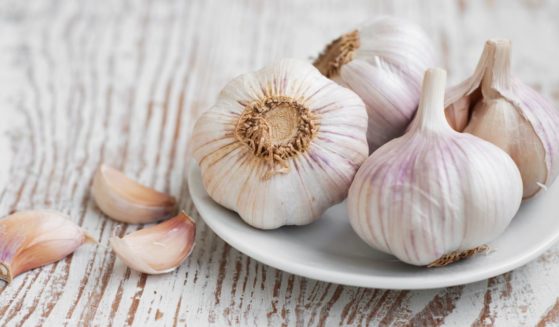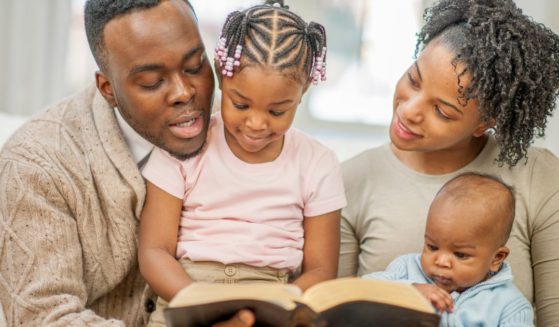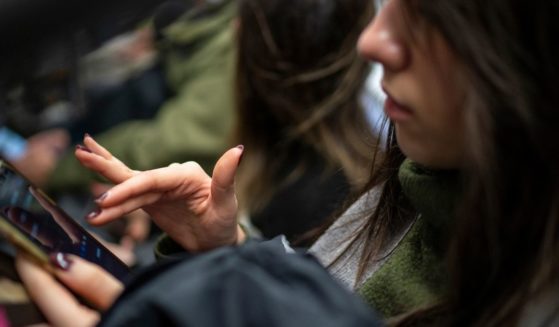Study: Trans People Suffering Because Straight People Won't Date Them
A study of transgender individuals and their dating prospects insinuates straight men and women are furthering the suffering of those in the trans community by refusing to go out with them.
While the establishment media, the entertainment industry and even many elected officials have attempted to normalize gender fluidity for several years, most people not in the portion of the population that engages in gender bending haven’t bought in.
A survey published by Sage Journals in 2018 evaluated the “demographic characteristics of individuals who are willing to consider a transgender individual as a potential dating partner.”
Researchers Karen L. Blair and Rhea Ashley Hoskin asked a pool of 958 participants about hypothetical “dating partners.”
The Canadian researchers asked the participants to check off if they would consider dating a “a cisgender woman,” “a cisgender man,” “a transgender woman,” “a transgender man” and “a person with a non-binary gender identification.”
In a response that should surprise no one, most people would refuse the idea of dating someone who is transgender.
“Our results indicated that 87.5% of the participants who were asked this very question only checked off the cisgender options and excluded transgender and non-binary individuals from their hypothetical dating pool,” Blair wrote in a 2019 piece published by Psychology Today.
Of all respondents, straight men and women were more likely to refrain from entering the idea of dating a transgender person.
“Individuals identifying as bisexual, queer, trans, or non-binary were most likely to indicate a willingness to date a trans person,” the original study found.
In her Psychology Today article, Blair stated that by refusing to enter into what technically are gay relationships, straight people are furthering the misery of that part of the population.
While Blair said people, apparently even straight individuals, have the “freedom to decide whom they date,” their overall aversion to dating people of their own gender who might be convinced they were born in the wrong body is evidence that already embattled transgender individuals face prejudice.
Blair wrote that, “Understanding the extent to which trans individuals are excluded from the realm of dating can serve as a benchmark for where society currently stands with respect to including trans and non-binary individuals.”
“It is one thing to make space for diverse gender identities within our workplaces, schools, washrooms and public spaces, but it is another to fully include and accept gender diversity within our families and romantic relationships,” the researcher added.
“Ultimately, however, this research underscores the consequences of shared societal prejudices that impact our trans friends, partners, family members, and coworkers on a daily basis.”
Transgender individuals are more likely to suffer emotionally and consider suicide than many other groups in society, according to a multitude of research on the subject.
Reuters Health, for example, reported earlier this year that in the United States, “Roughly half of transgender teens who identify as male but were assigned a female gender at birth have attempted suicide at least once, the study found. And 42 percent of adolescents who don’t identify exclusively as male or female have at least one prior suicide attempt.”
“About 30 percent of trans female teens – who identify as female but have birth certificates that label them as male – have tried suicide at least once, as have 28 percent of adolescents who are questioning their gender identity, the study also found,” the report noted.
While any human suffering is terrible, the social remedy in recent years for the transgender community has more or less been for enablers in culture and medicine to assure these individuals they are validated for believing they were born into the wrong body.
At the same time, people who resist such an affront on biology, morality and social mores are essentially smeared as being bigoted.
Attempts to convince society that a man wearing makeup is not a man have failed, even if that man has surgically altered genitalia.
The left’s strategy of convincing transgender persons that any mental illness they might have is validated — and that the broader society is wrong if they don’t agree with that validation — appears to be furthering the misery.
A wonderful article by a self-described transgender person and published by The Spectator Australia in 2017 made a valid argument against normalizing transgenderism, especially among youths.
“We don’t [normalize] having cancer and we don’t [normalize] medical conditions, yet society is [normalizing] transgenderism, which [trivializes] my grief and pain,” argued a transgender individual using the handle Libby DownUnder.
“While I’m grateful that the stigma has significantly diminished in recent years, I am disturbed by the social [normalization] and [demedicalization] of transgenderism. Despite receiving the best ongoing medical treatment for gender dysphoria I could ever ask for, my dysphoria still causes me grief and pain. But that’s my grief and pain to carry. And it’s the responsibility of adults to deal with the struggles of life,” Libby DownUnder added.
Individuals struggling with identity disorders in regard to their gender are being set up for disappointment once they leave the safety of an echo chamber that validates them.
Most people, by and large, arguably would show compassion to a fellow human being suffering from a mental-health crisis.
But the majority aren’t willing to ignore their own values, hormones and sexual orientation with regard to dating in order to accommodate someone who is struggling with their identity.
Truth and Accuracy
We are committed to truth and accuracy in all of our journalism. Read our editorial standards.












